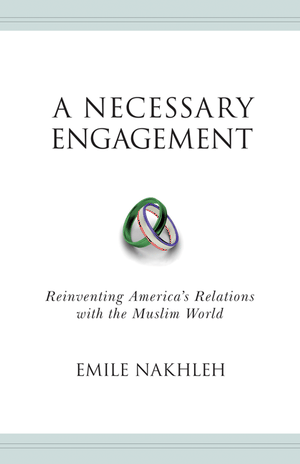Anyhow, since my response isn't going to be published over there, I'm publishing it over here. The full text is below the fold.
Finally, I should clarify that I'm no longer billing myself as the "Editor" of ProgressiveHistorians, but I was when I first sent in the original piece, and they haven't corrected my description in all places. Apologies to the very capable AndrewMC.
Incommensurate to the Threat Posed
Jeremy Young
I want to thank David Horowitz and Ben Johnson for their response to my critique of their book Party of Defeat. However, their comments indicate that they have not read my piece as carefully as I read their book, which is a shame. For instance, they failed to understand the first three paragraphs of my essay, in which I lecture other liberal critics of Horowitz concerning the best way in which to engage him. Let me be very clear: my comment that Horowitz is a provocateur – “a profession,” as I note in the original essay, “with a long and distinguished pedigree” – was not intended as an “insult” or even a criticism. On the contrary, I admire and respect Horowitz for his ability to reduce otherwise intelligent liberals to spluttering inarticulateness. Horowitz is extremely good at what he does, and I appreciate him for his ability and for his staying power. Nor, contrary to the erroneous claim of the authors, did I intend any “insult” to Ben Johnson; since I know virtually nothing about the man, I would not dream of making personal criticisms of him. The reader will search in vain for such comments in my essay.
Horowitz and Johnson also write of my belief “that previous critics made the mistake of attempting to refute the arguments in our book, when of course provocation is really our game.” Again, this statement runs exactly counter to my claims in the first three paragraphs. I argued in that passage that critics have spent too little time focusing on Horowitz and Johnson’s broad arguments, and too much time nitpicking over specific pieces of their evidence. “Horowitz's readers deserve a serious and substantive response to their views,” I wrote in the original piece. Does that sound as if I’m against “refuting the arguments” in Party of Defeat?
Horowitz and Johnson claim that I believe jihad doesn’t exist, that I oppose taking any action to prevent Islamic terrorism, and that I support treasonous acts by an opposition party during wartime. None of these statements accurately represents my views as expressed in my original essay. As I stated clearly, I acknowledge the jihadist beliefs of Al-Qaeda leaders, I oppose treason, and I support the war in Afghanistan and American counterterrorism efforts at home and abroad. In comically misstating my views, however, the authors conveniently ignore the points I was trying to make. For instance, I argued not that jihad did not exist, but that our response to it has not been “commensurate to the threat posed.” Granting for the sake of argument that “jihadists” are supported by nearly a dozen Middle Eastern governments, as Horowitz and Johnson state in their response, that does not necessarily mean that we need to fight those governments or to strain our national resources in opposing them. In fact, every time the authors emphasize the vast nature of the jihadist conspiracy, they underscore its weakness. If supporters of the jihadist movement “are conservatively estimated at more than 100 million,” yet they have managed to kill fewer than 10,000 westerners in (apparently) thirty years of trying, how great a threat to American security do they really represent?
Similarly, I don’t defend the treasonous acts of the Hartford Convention or of Clement Vallandigham in America’s earlier wars. However, the historically pervasive nature of opposition-party treason in wartime makes one wonder why Horowitz and Johnson want to condemn the non-treasonous acts of today’s Congressional Democrats. If, as I wrote in my original essay, “History shows that it is more common for American opposition parties to engage in open treason during wartime than to support the government’s efforts,” then why are the authors wasting their time attacking people who chose not to engage in treason? While their argument contains a kernel of truth, like the Bush administration with whom they have allied themselves, their outrage is not commensurate to the threat posed.
The authors accuse me of avoiding their fundamental argument that “the Democratic leadership betrayed a war they authorized while falsely claiming that they were deceived by presidential lies” – despite the fact that I describe this claim in detail and return to it at several points in my piece. Horowitz and Johnson apparently expect me to critique them using a line of argument of their choosing, perhaps a rousing defense of the integrity of Congressional Democrats. However, they won’t find me offering any such defense of a group of people whom I consider for the most part lily-livered and almost comically inept. Instead, I refute the argument of Party of Defeat by rendering it meaningless. As I show in my essay, the authors have “proved” that Congressional Democrats, motivated by political concerns, undermined in a non-treasonable and far from unusual way the prosecution of an unnecessary war against an unimportant opponent. There’s no need to debating their conclusion because they fail to show why it matters.
Furthermore, they fail to respond to my third and most important argument: that the certainty of America’s military ability to defeat the entire Middle East makes the War on Terror “a fundamentally different war from…any other war the United States has fought.” “The question,” I wrote, “is no longer whether we can achieve victory; it is how much victory we are willing to pay for, given the financial, political, and human costs of invading and conquering countries.” Congressional Democrats disagree with Horowitz on the amount of victory that is worth achieving given the costs, but that does not make them a “party of defeat.” Instead, the disagreement represents the type of healthy debate that is necessary for a democratic society to function properly.
Horowitz and Johnson consider my final paragraph laughable. In response to my claim that “Global climate change, epidemics of infectious disease, volcanic eruptions of massive force, [and] the sudden impact of a large asteroid” are more serious threats than terrorism to American security, they write that I “advise we replace the War on Terror with the War on Tors.” In this instance, the authors are exactly right. In fact, one would need to be ignorant of natural history to argue that tors were not far more dangerous than terrorists. If Horowitz and Johnson require evidence of this fact, I would suggest they consult, respectively, the woolly mammoths, the third of Europe’s population that perished during the Black Death, the Minoan civilization on Crete, and the dinosaurs – all of whom learned the hard way that one ignores the dangers of environmental catastrophe at one’s peril. On the other hand, if the authors can find a historical example of a civilization wiped out or even seriously threatened by terrorism, I suggest they offer it forthwith.
Labels: Jeremy Young









